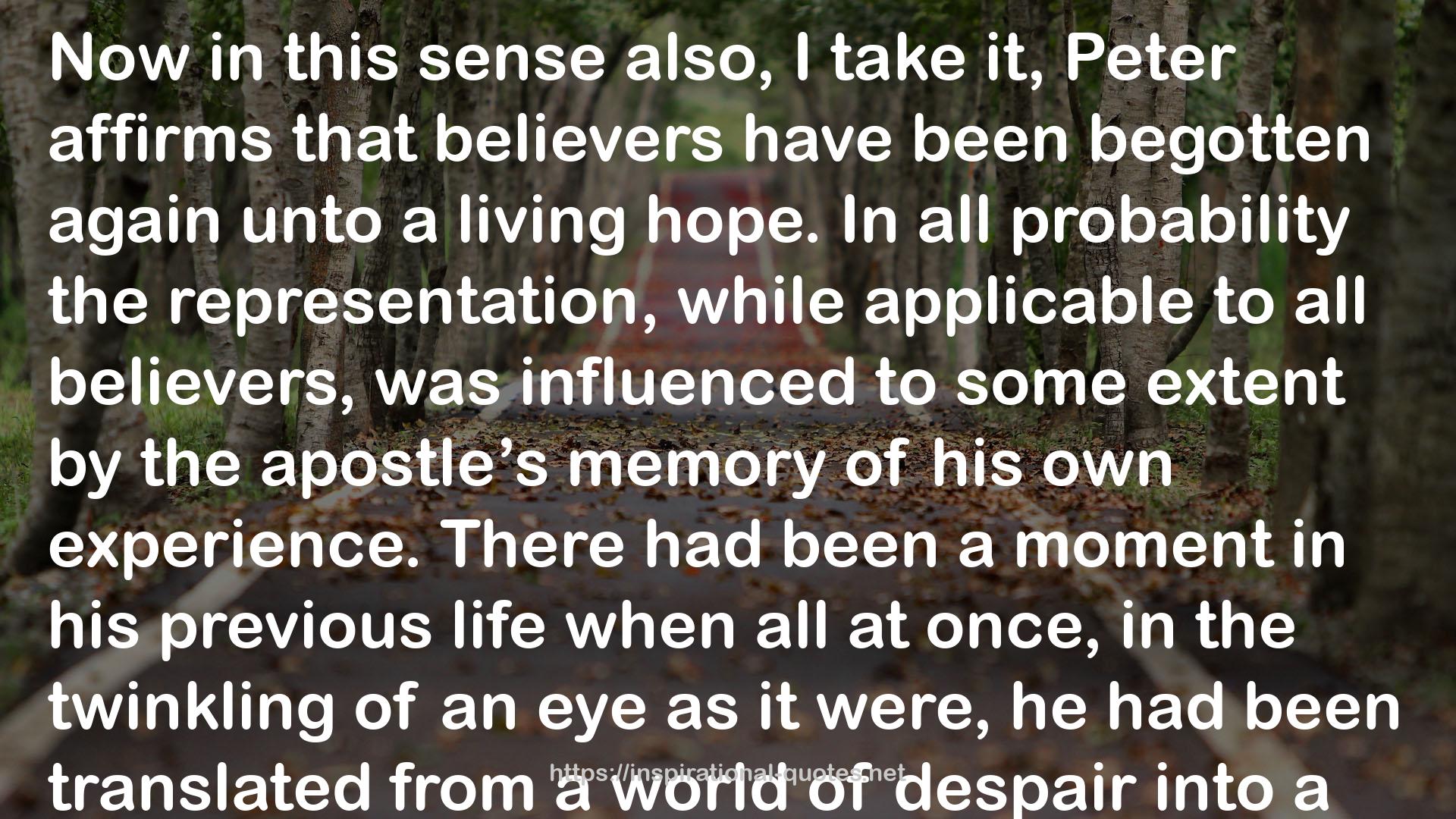" Now in this sense also, I take it, Peter affirms that believers have been begotten again unto a living hope. In all probability the representation, while applicable to all believers, was influenced to some extent by the apostle’s memory of his own experience. There had been a moment in his previous life when all at once, in the twinkling of an eye as it were, he had been translated from a world of despair into a world of hope. It was when the fact of the resurrection of Christ flashed upon him. Under the two-fold bitterness of his denial of the Lord and of the tragedy of the cross, utter darkness had settled down upon his soul. Everything he expected from the future in connection with Jesus had been completely blotted out. Perhaps he had even been in danger of losing the old hope which as a pious Israelite he cherished before he knew the Lord. And then suddenly, the whole aspect of things had been changed. The risen
Christ appeared to him and by his appearance wrought the resurrection of everything that had gone down with him into the grave. No, there was far more here for Peter than a mere resurrection of what he had hoped in before. It was the birth of something new that now, for the first time, disclosed itself to his perception. His hope was not given back to him in its old form. It was regenerated in the act of restoration. Previously it had been dim, undefined, subject to fluctuations; sometimes eager and enthusiastic, sometimes cast down and languishing; in many respects earthly, carnal and incompletely spiritualized. Apart from all of these defects, his previous hope had been a bare one, which could only sustain itself by projection into the future, but which lacked that vital support and nourishment in a present substantial reality without which no religious hope can permanently subsist.
Through the resurrection of Christ, all these faults were corrected; all these deficiencies supplied. For Peter looked upon the risen Christ as the beginning, the firstfruits of that
new world of God in which the believer’s hope is anchored. Jesus did not rise as he had been before, but transformed, glorified, eternalized, the possessor and author of a transcendent heavenly life at one and the same time, the revealer, the sample and the pledge of the future realization of the true kingdom of God. No prolonged course of training could have been more effective for purifying and spiritualizing the apostle’s hope than this single, instantaneous experience; this bursting upon him of a new form of eternal life, concrete and yet all-comprehensive in its prophetic significance. Well might the apostle say that he himself had been begotten again unto a new hope through the resurrection of Christ from the dead. And, of course, what was true of him was even more emphatically true of the readers of his epistle, who, if they were believers from the Gentiles, before their conversion had lived entirely without hope and without God in the world. "
― Geerhardus Vos , Grace and Glory
